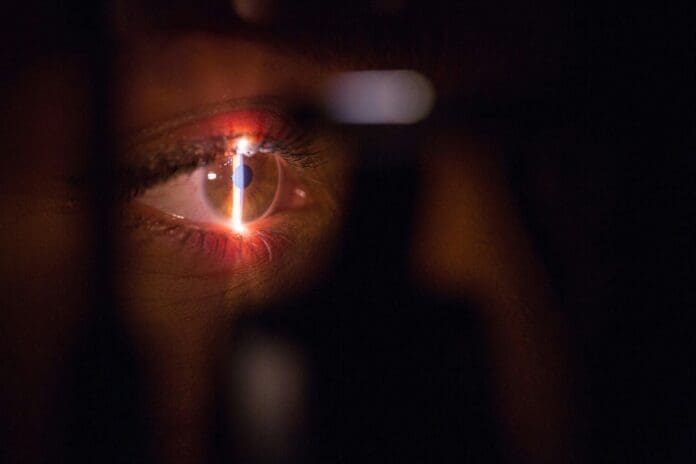A new biometric verification technology that uses eye-scanning hardware to verify human identity is rolling out across the United Kingdom this week. The system, built around a device known as the “Orb,” is part of a broader effort to address the growing risks posed by artificial intelligence misuse, particularly in areas like identity fraud, deepfakes, and unauthorized bot activity.
Designed to distinguish real individuals from AI systems, the Orb, created by OpenAI’s CEO Sam Altman, uses advanced imaging to scan a user’s face and iris, generating a unique, encrypted code known as an “iris code”. This code confirms that the user is human and forms the basis for a digital ID called “World ID.” Importantly, the process does not store the original biometric image, only the secure identifier, which helps reduce privacy concerns, according to CNBC.
This new technology is now being deployed in London and will soon be available in other major UK cities. It follows earlier launches in several U.S. cities, with plans to scale globally.
The system offers users a secure and anonymous way to prove their identity online. Once verified, users can sign into applications without sharing personal data. Verification happens locally on the user’s smartphone, not the cloud, further strengthening privacy protections.
As AI becomes more capable of bypassing traditional authentication systems, from facial recognition to CAPTCHA tests, demand for robust human verification methods is rising sharply. The Orb aims to fill this gap, providing a scalable identity solution suitable for both commercial and governmental applications.
According to its developers, the technology is gaining interest among public sector bodies exploring digital ID infrastructure. It’s seen as a possible alternative to traditional physical ID systems, which often suffer from limitations in security and scalability.
While privacy advocates have raised concerns, the system’s architecture emphasizes encryption and local processing. As of now, over 13 million users have been verified globally, with plans to expand that number significantly in the near term.
In a digital era that is increasingly vulnerable to AI-generated fraud, technologies like this could play a central role in securing identity verification for both individuals and institutions.



























